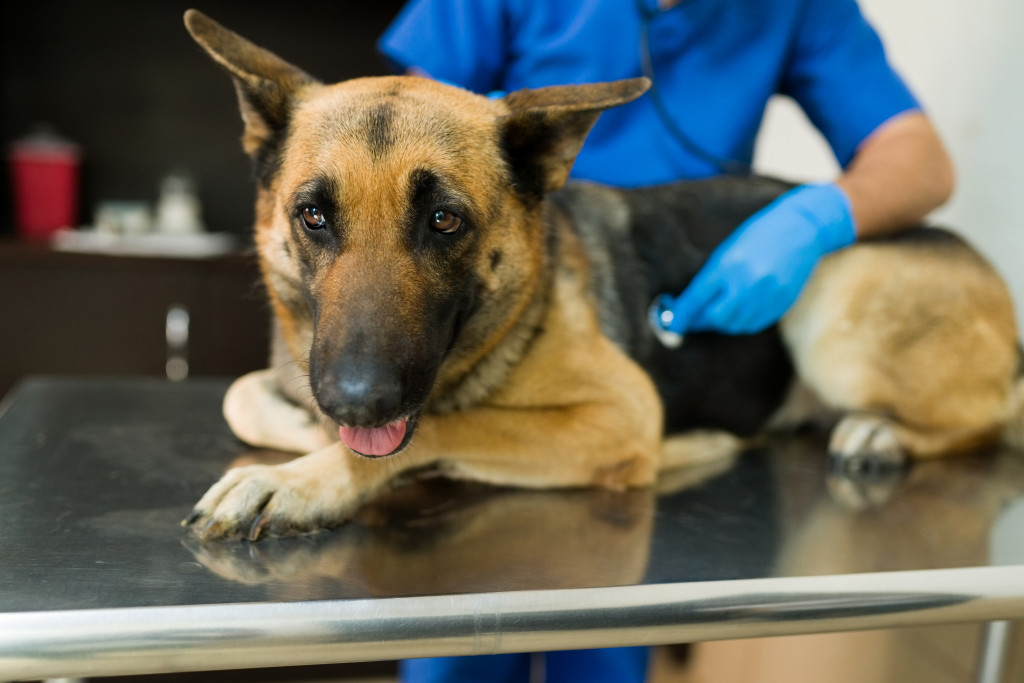Diseases in dogs can include various conditions, some of which are preventable and others that are not. One of the most common diseases in dogs is Canine Parvovirus, which is highly contagious and can be deadly.
Other diseases which affect dogs include Leptospirosis, Lyme Disease, and Rabies. These are relatively dangerous diseases that can lead to serious health problems or even death in dogs. However, one of the deadliest diseases that wasn’t mentioned above, and one that you should pay extra attention to, is canine distemper.
Canine Distemper
Canine distemper is a virus that’s closely related to the measles virus in humans. It’s highly contagious and is often deadly in dogs. The initial symptoms of the disease include fever, runny nose, and watery eyes.
As the disease progresses, it can lead to more severe symptoms such as vomiting, diarrhea, seizures, paralysis, and death.
Your dog can contract canine distemper by coming into contact with another infected dog. The virus is spread through bodily fluids, so if your dog comes into contact with an infected dog’s saliva, urine, or feces, they can contract the disease.
Another way your dog can contract the disease is through contact with contaminated surfaces. For example, if an infected dog has been on a surface, and you let your dog come into contact with that surface, they can contract the disease.
The virus can also be spread through the air, so if your dog is around an infected dog coughing or sneezing, it can contract the disease.
There is no specific treatment for canine distemper, and the virus can be deadly in dogs.

Diagnosing Distemper
Canine distemper has the same symptoms as many other viral diseases in dogs, so self-diagnosing your fur baby with it is ill-advised. Instead, your best bet in diagnosing the condition is to take your furry friend to the vet as soon as you notice any symptoms.
Your veterinarian will likely run some tests, including a physical exam, blood test, and urine test, to rule out other possibilities and confirm that your dog has canine distemper.
Treating Canine Distemper
There is no cure for canine distemper, but some treatment options are available to help your dog fight the virus and improve its symptoms.
One option is to provide supportive care, which involves keeping your dog hydrated and preventing them from getting too stressed. You can do this by keeping them in a quiet room away from other animals, providing them with a comfortable bed, and ensuring they have plenty of freshwater to drink.
Another option is to provide your dog with medication to help relieve their symptoms. For example, your vet might prescribe antibiotics to help with a secondary bacterial infection, anti-seizure medication to control seizures, or pain medication to help with any discomfort your dog is in.
The goal of treatment is to help your dog fight the virus and improve its symptoms. Unfortunately, even with treatment, many dogs who contract canine distemper die from the disease, and those that survive may have severe neurological problems. However, don’t lose hope. A decent chunk of dogs with this disease tends to survive without serious repercussions.
Preventing Canine Distemper
The best way to keep your dog survive this disease is to prevent them from getting it in the first place. One way is by teaching them obedience.
Obedience Training
As stated earlier, one of the ways dogs contract canine distemper is by coming into contact with other infected dogs. If your dog knows obedience commands, you can keep them away from other animals when you’re out and about and prevent them from contracting the disease.
You can train your dog to obey, but one of the best ways is to do it early on and with a trainer. An experienced puppy trainer can help you teach your pup basic obedience commands and get them started on the path to being a well-behaved dog. You don’t even have to lift a finger to do it, making it an efficient and comfortable choice for you.
Another way to prevent your dog from getting canine distemper is by keeping them up-to-date on their vaccinations.
Vaccinations
All dogs should be vaccinated against canine distemper, a highly contagious and deadly disease. The vaccine is usually given to puppies at 4-6 weeks old and then at 8-10 weeks old. After that, they will need a booster shot every year or two for the rest of their lives.
If you have an adult dog that has never been vaccinated or has been more than a year since their last booster, you should take them to the vet and get them up-to-date on their shots.
Puppies and older dogs at a higher risk of contracting canine distemper (such as those who are homeless or live in shelters) may need to be vaccinated more often.
Canine distemper is a severe and deadly disease, but it is preventable. By teaching your dog obedience commands and keeping them up-to-date on their vaccinations, you can help keep your furry friend safe from this disease.

